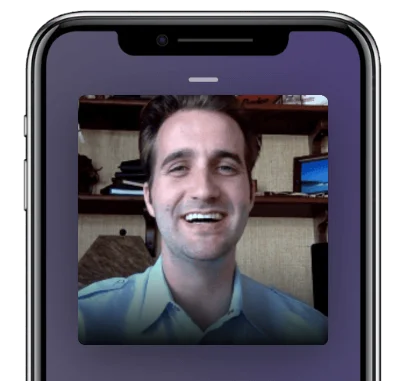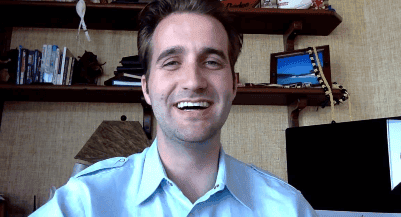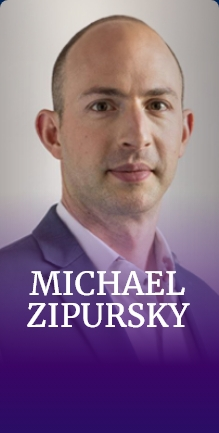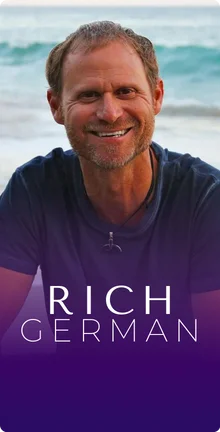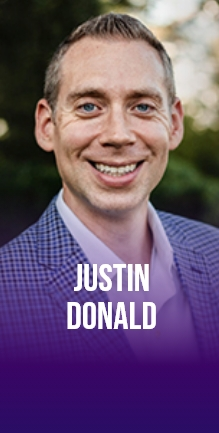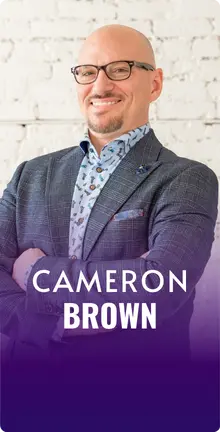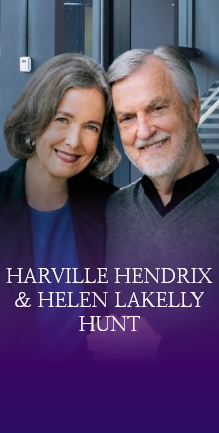Now, Ephraim, it’s great to have you on the show. Thank you for joining us!
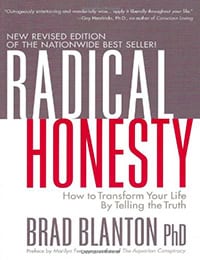
Thank you. It’s great to be here!
I‘d love to talk a bit more about being committed and being intentional. You once told me that you are intentional in everything that you do. In other words, you don’t have any downtime because you don’t allow yourself to just show up unintentionally, and I’d love for our listeners to hear more about that.
First, I just want to say that it’s great to be here. Just a few minutes ago, before we started recording, I’m just really grateful for the opportunity to be here with you and to be talking with you. You know, Stephan, I get the chance to meet a lot of really incredible people, and from the very first time that I met you, you just stood out to me as somebody who has a unique way of being in the world, and so, it’s been really incredible to get to know you. I guess it’s been a couple of years now, and we have built a relationship over these years I was looking forward to seeing you in a few days, so thank you for that. Thank you for our relationship, for the way that you show up in the world, and you’ve been a gift in my life, and I know that you’re a gift in a lot of other people’s lives, so thank you for that.
Oh, that is very kind. It really touches my heart, and you’re a very special person in my life and in the lives of many others. You’ve touched a lot of people’s lives and made a huge impact on people—me included—so thank you.
Yeah, it’s really a privilege. Thank you. And to anybody who’s listening—I don’t know what you’re doing right now besides listening to this, but I really just want to acknowledge you for being the kind of person who actually listens to something like this. There are seven-something billion people in the world, and I imagine that not all of them are going to listen to this so it says a lot about how you’re the kind of person who’s looking at how you can grow, how you can become more, and how you can make a bigger difference and impact in the world, so thank you for that.
Yeah, I think back to your question, and I want to make sure that I’m speaking to that as if you’re talking about being intentional. You know, I think about it like this: as I move through the world and in the way that I live and who I interact with, I think that—whether I’m sitting here in my office with a client who has paid me to work with him or if I’m in the grocery store—there isn’t a distinction in the way that I’m being. In other words, I’m Ephraim, and I take me with me everywhere I go. I’m everywhere in my life. And so bringing this intentionality to it, I think that, especially in the world of internet marketing and coaching, somehow these things mix in together. I’m not much of a marketer, but the world of these two things mix together, and there are a lot of people who talk about how they can travel all time or how they’re working on a beach and that sort of lifestyle.
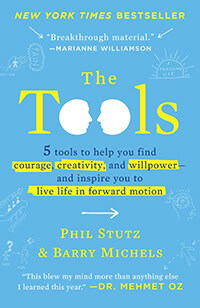
I think there’s something to be said about what you can know if you and I are talking, I’m sitting right here in my office, and I’m sitting at my chair, at my desk, in my office, and this is where I’ll be unless you and I have made another agreement that I’ll be somewhere else, but that’s what you can count on. I think there’s something to be said about knowing that you can count on that consistently. I’m not going to be on the beach, I’m not going to be traveling around the world. Although I do all those things, I just don’t do all those things and work with clients during that time. Even if I think about something like that—if I’m traveling around the world or if I’m going to the beach or grocery store, bringing this intentionality to it is that I’m clear that in everything that I’m doing, every action that I’m taking, everything that I’m saying, I’m always creating something. The way that I move through the world is creating something, and that really leaves me with the question, “What is it that I’m creating right now?” So if I’m at the grocery store with my kids and I interact with them in a certain way, if somebody sees that, it might create something over there with them.
In fact, it will create something with them, but what will it create? That’s really the question. For me, it’s been one of the most important questions that I can ask is what is it that I’m really committed to?” What is the difference I’m really committed to make and then how do I bring intentionality to everything that I do to my entire life so it is not just when I’m here because it certainly does show up when I’m with a client, but when I’m with my wife or when I’m with my children or when I’m with my friends, how does that show up? Does that speak to that a little bit?
Amazing! And you told me once that trying powerfully is in every aspect of your life and every place you show up, for example, your family reunion. I never thought of it that way. When I go to my family reunion in Michigan once a year, I should have an intention for that, and what is that intention? If I crystalize and define that intention for myself before I show up, I’m going to show up more powerfully, I’m going to be “more” at that family reunion, and I’ll get more of the outcomes that I’m hoping for. That’s powerful.
Yeah, I have a client who always has these stories of people that he meets. He will be on an airplane, and he’ll sit down on the airplane and meet an incredible person and it’s this amazing story that he’ll have with them. He constantly has stories about these different people that he’s meeting. He says, “I’m just living my life. I’m not going out trying to meet these people. It’s just that they just start talking to me. It’s like, they can’t help but talk with me or something.” They can’t help but meet them. I think when you start to experience that side of it—what it creates when you show up intentionally—it really starts to open up. You start to see what’s possible when you move to the world really intentionally, knowing that what it is to be a human being is to create—that you’re always going to be creating something.

And it’s not just with places where you show up more intentionally but it’s also with people, as you say, and not just the people whom you care about or whom you have vested interests in but just with everybody. There’s this image that is popular on Pinterest and so forth that says, “A person who is nice to you but is not nice to the waiter is not a nice person,” and it’s just another spin on the same concept that you just show up with intentionality and presence with whoever it is. It could be that the person sitting next to you on the airplane is somebody who is an incredible person who could open doors for you and change your life. Being that person that just treats everybody with respect, kindness, consideration, and full presence is going to change your life.
It’s beautiful. I just remember that for me, wherever I am and there are people, which is pretty much everywhere, it’s another human being there that I’m dealing with. This person, I know you’ve been a follower of Tony Robbins and I think he said something like, “Everyone is a master of something,” and that you can learn something from everybody. Is that something that Tony says?
Yeah, in fact, he would go to the same seminar early in his career. He would take copious notes and even if it was the same seminar and he heard it five different times before, he would still take copious notes each time so he was definitely a fully present person for upscaling, learning, and kind of feeding his soul.
Yeah, that is another human being and somehow, it seems that it can be easy to forget that as we move to the world, we’re busy, and we have all this stuff that we’re up to. But no, that’s actually another human being and I could make a difference with him. It might just be in the way that I interact with them when I’m paying for my groceries, I don’t know, but there might be something that would make a difference with them and so, it’s really just incredible when you get it. I think it kind of sets you back and blows you away and you go, “Wow! That is another human being and I am in a conversation with him.”
A lot of times though, judgment gets in the way, which is something that I’ve learned through my Kabbalah classes that it shuts off love so you can either be in judgment or you can be in love but really not both at the same time. So when I’m judging somebody, I’m not loving them. Whether it’s a significant other or a colleague, a business partner, a friend, a child, or a parent, it doesn’t matter because you’re shutting off love at that point including strangers and people who could give you a gift of something spiritual or enlightening. You’ve shut off your love because you’re in judgment so it’s a struggle against the ego but if you can quiet the judgment more so than you’re doing now and we can always get better at this. I’m working on it myself.
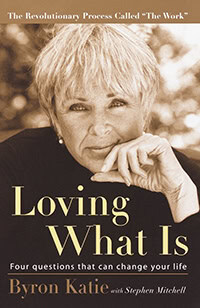
You’ll see that there are opportunities to add light to the lives of others and for them to add light to yours. So, let’s talk about this concept of not having any downtime when you’re just intentional with everything that you do. Basically, it means you’re not sitting in front of the TV and randomly flipping channels to see what’s on. You have an intention for even the most mundane activities, right? If you’re running an errand or whatever, you have an intention. Say more about that.
I don’t have a TV, so I don’t know what it’s like to flip through the channels. It’s been a while since I’ve done that. I think you’re the same way with that.
You know what, I’ve just canceled Netflix. Orion, my fiancée, and I just canceled Netflix together. It was a joint decision and it is so freeing. It’s amazing because we were starting to binge-watch some episodes and the funny thing is, we know better than to just veg out in front of the TV. That’s why we don’t have cable and satellite TV. I haven’t had satellite TV or cable for so many years! I just don’t sit in front of the TV. I don’t believe in that but yet, it started innocently enough with just watching some movies here and there and popping some popcorn and so forth, and then the episodes started and it’s so easy with Netflix to binge-watch! One episode ends in a cliffhanger and so you just want to go to the next one—oh my God!
It definitely shifted things for us to just cut that off. I’m an abstainer and that means, if I have cookies in front of me, I just can’t take one. I have to eat the whole bag or box or jar. Same thing with sugar, TV, Netflix, and whatever. I don’t know how to keep it moderate so it’s all or nothing for me. It’s just the way I’m wired. Other people can be wired to just take stuff in moderation and then that’s fine but if you’re like me and you’re an abstainer, you just have to go cold turkey on whether it’s Netflix or sugar. You know, I have not eaten sugar, except on holidays like Christmas and New Year’s, since July and I’m really quite proud of myself considering I was a sugar addict my whole life. I am a crazy sugar addict and I just released that from my psyche and now, it doesn’t even bother me. It’s like, you have this point, this shift, where you and—this is another Kabbalah concept—is that you’re in suppression, right?
You’re really suppressing your urges and it’s hard work because it takes your energy, it’s painful, and it hurts but then you get to this point where it’s like a click point and it’s not painful anymore and it’s not even uncomfortable because it feels good, it feels energizing, and it feels powerful. When I say no to a cupcake or a candy bar or whatever and I’ll tell you that the hardest thing for me was when it was for free! Even if I can certainly afford the dollar for a candy bar or something if they’re free candy bars at a conference during a break for everybody? That was the hardest thing for me before but now it’s not hard anymore. I’ve gone past suppression to what’s called restriction, where now it’s empowering and it feels good because it generates happiness in me to say no to those things.
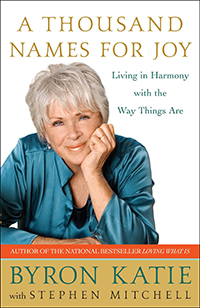
It’s amazing. I’m equally as committed as you are. It’s just I’m committed to the opposite. One of the things for me is that I’m really for health. Whatever empowers a person with their health. One of the quotes that I just love says something like, “A person with their health has a thousand wishes, and the person without their health has one.”
It’s true. I’m blessed with great health, but for those who aren’t, I can’t even imagine the challenges, the pain, and the difficulty so my heart goes out to those people. I’m going to share a little embarrassing story and I think it will be beneficial for our listeners. One of the events that we were at together was your workshop in July last year and that has made fundamental shifts in me. It was such a gift. The first day though, I showed up three minutes late and you know what they say, “How you do one thing is how you do everything,” and I realized through your help that I was setting a low standard for myself and allowing myself to show up in an ineffective way in other people’s lives.
By allowing myself to be three minutes late, I was just justifying because I was tired and I had a conference call at 8 am. I had some excuses, but indeed, how you show up in one thing is how you show up in everything and how you do one thing is how you do everything. There are so many other places in my life where I’ve shown up late: with my kids, with people I care about, business situations—I was slacking in terms of that standard, and you spent, probably two hours, on this with the whole group. And they’re like, what? 15 people? I basically sucked two hours out of the day for everybody because I was three minutes late. Now, everybody, I think, got a lot of value out of that because they were letting their standards slip in other ways, maybe not being late, but that was a powerful and uncomfortable lesson.
That’s amazing! I think what’s powerful in what you just shared is when you said, for most people, if they would look and what I would imagine they would see if we really look and take an honest look, and there’s a book called Radical Honesty and it talks about how one of the most difficult things for us to do is really take an honest look at confronting the ways that we operate that don’t really work. Most people would probably find that if you’re showing up late to everything, you’re really showing a plight to your life. It’s really powerful, so I’m thinking, if I was listening to this, I’m thinking, “Who is this guy? Is he some kind of a time Nazi?” I think that it will be important to say that my approach is the very foundation of—you know, I’m into performance—that’s when someone hires me, or when I’m working with somebody, it’s about performance.
There is no workability without integrity, and so to really oversimplify it for a person would be that your words are whole and complete and that would mean that you’ve done what you’ve said you would do or you’ve dealt with the impact of having not done what you said you would do. It’s incredible, the cause in our lives of going around through our lives, not doing what we say we’re going to do, and then it’s a continuum. Not doing what we say we’re going to do and then not actually, what most of us do is we try to conceal it, hide it, cover it up, or pretend that it didn’t happen, and we get to the point where we don’t even know we didn’t know what we said we were going to do because we don’t even keep track of what we said we were going to do. You know I can speak to that as an expert.
One of the things that I have at the expert level is being out of integrity because I lived a lot of my life being out of integrity. The value and the power of being a person of integrity, in other words, being someone who can be counted on to make happen what they said would happen. You’ve shared with me some of the impacts in your life, like how it’s positively impacted your business and positively impacted your relationship with Orion and some of the impacts. The cause of being a person who lacks integrity is just, and I don’t mean most people think about integrity as morality or ethics and you and I know that that’s not what we’re talking about. It’s just simply a matter of your words. The cause of being a person or an organization that lacks integrity is huge, and a lot of us don’t see it.
Really, at the end of the day, all we have is our word. Some people listening might say that it’s crazy—that I’ve got all these resources, I have employees, I have all this money in the bank and so forth—but really, when we are stripped of whatever resources that we have accumulated and let’s say, we’re on our deathbed, all we have really is the word that we have and kept over our lifetimes and the relationships that we’ve built or destroyed based on that.
And I would say words as also as actions. You know, actions speak louder than words as well because our actions are interpreted as something. They’re interpreted to mean something.
You talk about workability, and workability is something that doesn’t include judgment which I think is important for people to grasp. When something is not workable, it just doesn’t work. It doesn’t mean that it’s wrong, it doesn’t mean that it’s broken and there’s some sort of negative judgment against it. It just doesn’t work for whatever outcome we’re trying to achieve. Let’s talk more about that because I know that I’ve used, in my life, let’s say there’s a prospect or a client, and it’s not just workable for whatever reason—I actually use those words, “There’s nothing wrong here, it’s just not workable,” and in some cases, we’ve figured out a way to make it work but in other cases, we just part ways as friends so how did you pick up on this concept and how do you use it in your life?
When something is not workable, it just doesn’t work. It doesn’t mean that it’s broken and there’s some sort of negative judgment against it. It just doesn’t work for whatever the outcome we’re trying to achieve. Share on XWell, years and years ago, I sat in training, and they did this—they drew on this paper, and they drew a line in the middle and on one side, they wrote “Wrong” and what it feels like to be wrong and then on the other side, they wrote “Right” and what it feels like to be right. What I saw in there is that there are two sides of the same coin. That I couldn’t be right without someone else being wrong, and as much as I realized that. “Yeah, okay, I don’t like being wrong,” most of us don’t like being wrong. Most of us are just fine with being right. If I’m right, it requires someone to be wrong. That’s the only way I can be right. It is in contrast with that. Then what they did was they crossed that out and on the one side, they wrote “Working” and “Not Working,” and I thought, “Okay.”
But the way that it occurs to me now and the way that I see it is that it really looked like what they did is they said, “Wrong means not working,” and “Right means working.” That was how I heard it. I know that’s not how it was meant at the time, but that was how I heard it, so I thought, “Oh, okay, we just got new words!” for this so, working means right and not working means wrong so I just thought it was the same thing and we just had new words for it. You can say that it’s just semantics, but it’s all just semantics, and so there’s really a, I don’t know if you remember what it was like being born, but I have this vision that there had to be this moment of like, it’s all really great. You know you have 24-hour room service, a water bed, you pretty much had it made and then all of a sudden, you were born, and just imagine at that moment, there has to be something, knowing human beings, there has to be something at that moment where we just went, “Yeah, this isn’t it. There’s something wrong here.” You’re born, I don’t know if this is the thing anymore, but they hold you upside down, and they slap you to get you crying.
It’s like, you know, welcome, and I can just imagine at that moment, there has to be something that just says, “Yeah, this isn’t it. There’s something wrong here.” It got really clear that as I was living my life, it occurred to me a lot that there was something wrong, but I didn’t know that. I started to see that because there was, it’s sort of like a fish being in water or air to birds that to be a human being, we kind of moved to the world where there’s an interpretation that something is wrong here. We don’t really see it. It’s really, you want to get that it’s like water to fish, and so when I started to see, “Wait a minute, maybe there isn’t anything wrong here,” and so for me, the way that I see it is really that simple. It’s that there’s what’s working and what’s not working. It either works or doesn’t work. Another way that you can see this would be, “What is powerful and non-powerful?” and that’s given by my actions and my speaking—what is powerful and what’s non-powerful if I interpret the world.
There are a lot of different ways to see the world. You can look at it what’s right and wrong, good and bad, and should and shouldn’t, and even in working and not working. I think the upgraded or elevated way of seeing that is what works for me, and where I notice that I’m left with power is what’s powerful and what’s non-powerful and the way that I determine that is based on what I’m up to and what I’m committed to. Let’s say I own a business, and what I’m committed to is that I’m thinking of different values in the business. Let’s just say that one of my commitments is that I have exceptional customer satisfaction, and something happens and I have a customer or someone who is an employee of the company, and there was an interaction between them and the customer and it leaves the customer with the experience less than being exceptionally satisfied. The way I see that is it just isn’t powerful for what the company is about and what the company is up to. Where there’s really power in that is that you aren’t left dealing with it like it’s right or wrong, or that person is bad, or the person is wrong. You are just left dealing with it as being non-powerful. It’s an empowered and honored place in the conversation to be able to have a conversation or work something out from the place of, “This is non-powerful for what we’re up to.” It is worlds apart. It literally lives in a different world than being right or wrong or good or bad.
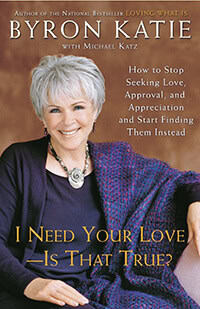
Or should, which is from the concept of non-violent communication or NVC. Marshall, who created NVC, talks about should as being the most violent word in the English language and that we should stop “shoulding” all over ourselves. It’s true. So true. This one is from Jared Spool, I just heard him speak, not even a week ago, and he talked about satisfaction surveys and how much of a non-starter that is like, “Really, satisfaction? I’m satisfied? I’m maybe perhaps dissatisfied, or I’m very satisfied?” It’s like saying, “This food was edible,” or “It was very edible,” or “It was not very edible,” so it just doesn’t create customer delight to have that kind of standard of satisfaction or edible, right? Words are really powerful if you use the right words, then your words become actions which become things that you create in the world, and if you have the wrong words then you’re going after the wrong things. I love your intentionality with the language that you use.
For me, I’m really clear that words create. What words am I using that is going to determine what I’m creating?
One of the words that you use that I don’t hear a lot of from other folks is being complete—we are complete, or we’re not complete. What does it mean for you?
Well, I can’t speak for all human beings, I can speak for me and my experience. Through a lot of the earlier part of my life, there was something missing, and I didn’t know what was missing. For a long time, I thought that maybe if my parents would have loved me this way— the way that they should have loved me, and I’ll say something about that in a minute—but you know, I probably had this whole thing with God wrong. Maybe it’s in religion. There was some sense of something missing, like an incompleteness, so what I’ve found is that to live—I’ve talked to a lot of people, and I’ve worked with a number of people, and it seems I’m not alone in that being the experience. I’ve had that for a lot of my life and in the earlier part of my life and then as I actually discovered what it was like to move through the world being complete, so if you look up the definition of integrity, to oversimplify the definition, it says: “The state or condition of being whole and complete,” and I think that’s what people really want.
I think they want love, and they want all the other stuff, but I think what they really want is to be whole and complete. See if you’re whole and complete, nothing’s missing. The definition is, the state or condition of being whole and complete, lacking no component parts, unimpaired. Nothing is missing from that so if you live in the world from a place of being complete, and this is why I love the conversation on integrity and integrity being a matter of a person’s word is when my word is whole and complete, it leaves me being whole and complete, and my assertion is that’s what people really want. That’s what they’re after. They’re after the experience of living a life where they are left whole and complete. What it means to me, then, is that life is really a function of relationships. It means having relationships to be complete, so I know that you and I probably have a very similar view on this.
It’s that your relationship with your parents—and if you’re listening today, I don’t know where you are with your relationship with your parents—what I can tell you is that it’s tremendously useful for living a successful, happy life when you’re complete with your parents and what I would say is complete with them is that you love, honor, and respect them exactly the way that they are and the way that they aren’t. That’s just a really honored place to deal with anybody. Love, honor, and respect them the way they are and the way that they aren’t, and that leaves me being complete with them. So, why do we move through the world and we have all these incomplete relationships and all these other kind of stuff is typical, the conversations that get us to being complete aren’t always comfortable. Sometimes you have to confront some of the hard things that don’t work, and if you’re unwilling to do that, then it seems like it would be easier to be incomplete, but it really isn’t. There is a tremendous cause to having, and you can’t make somebody be complete with you, but you can be complete with somebody else.
And you can give them the opportunity to be complete. For me, when I was in my early 20s, I decided to cut off my aunt from my life, and I had written her off for 20 years. I did not know the damage I was creating inside of myself—not just to her but to myself. I had my reasons, my justifications, and so forth from childhood, but at the end of the day, why would you cut your nose to spite your face, right? And people change too, and she had changed and really evolved. I read the book, The Tools, and in there, there are five different tools, and one of those tools is visualizing somebody that you’re in conflict with or that you don’t get along with and just flowing love and energy into that person. Then these visualization exercises, you imagine what it feels like for that energy to flow into them so you’ll really try and feel it and then you don’t end up being empty because the universe will fill you back up, so you visualize filling yourself up with love from the universe after you’ve done this. It was just a beautiful exercise, I did that with my aunt, and you know what?
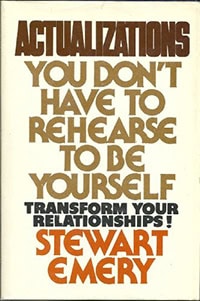
The next day or within a week, I called her. 20 years went by, and I finally called her, and it was beautiful. We spoke for a long time. I told her about my kids and what was going on in my life, and then a few months later, she came and spent a weekend at my condo, so she met some of my kids, and it was really beautiful. We stay in pretty regular contact now, and it was uncomfortable for me to reach out and to make that call, but it was so healing for both of us, and if you’re not showing up powerfully in your life, you don’t make those opportunities appear for you. Relationships come and go, and they can end, and people die and so forth, but you can still be complete, or you can be incomplete like I was for 20 years, and that’s not the way to live.
Yeah, there is a toll, and there is a cost to pay, and unfortunately, the cost of that is just hidden from us. We just don’t see it. I love one of the things that Werner said. He said, “When you have said everything that you haven’t been saying, what you’ll find is what you haven’t been saying is I love you.”
There’s another saying that Tony Robbins talks about that’s kind of similar where everything is either a loving response or a cry for help. Nothing in between. It’s either one or the other. Another thing to that that I’ll share with you, this is from Oneness. I learned this from the monks at Oneness University in Chennai, India is that your success with money is very much related to your relationship with your father. If you have unresolved issues with your father, you’re going to have money issues, so for those of you who are listening have unresolved issues with your father, I encourage you to resolve those because money will flow more readily, I think. If you believe in Oneness and I do—I’ve had incredible experiences with that and would love to have an episode on that at some point. Really try to come to terms with that father relationship, even if your father has passed. I had issues with my grandfather, and he had passed many years ago I finally managed to come to terms with that, and it brought me a lot of peace, but it wasn’t without work.
Yeah, there might be people listening, Stephan, who have had—I’ve heard some stories about people’s parents, and they did things, and there are people who have been abused by their parents, or they don’t even know their parents, or they’ve never met their dad and how do you become complete with that and it’s probably more than we can talk about today, but there is, if you’re willing to be complete in those relationships, there’s a tremendous amount of peace and power that comes out of that.
Well, my grandfather was abusive to me. He was a pretty violent man, and I lived for much of my childhood. It was tough. He was really violent. He was a scary man and for me to be complete with that relationship and see the light in him shifted something major inside of me, so I hope for that kind of gift in everyone’s life of having that kind of shift and realization and seeing the light in everybody because we all have light—no matter how much it’s covered by shields and shells, and this is a Kabbalah term, that you still have that light in you, it’s just not revealed yet. Just giving somebody the benefit of the doubt that they can still reveal some of that light is going to open up lots of opportunities both for you and that person.
Beautiful. A great resource for anybody who’s interested in not just even this conversation but in having more peace in your life period is Byron Katie’s work. I am a big fan of her work, Loving What Is, A Thousand Names for Joy, and The Work, it’s really brilliant.
I’m actually going to have Katie in one of my episodes coming up here. I’ve got an interview scheduled with her for this month.
She is amazing. I just absolutely love her! Her work has ended suffering for thousands, probably hundreds of thousands, of people. She’s an extraordinary lady!
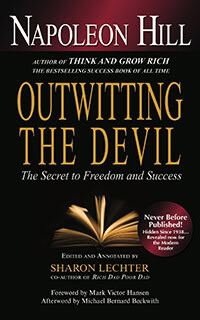
Yeah, I love the book. I Need Your Love is a great book.
Yes! I’m unaware of anything that she has produced that is not incredibly valuable.
Of course! I haven’t gotten to the other books yet, but I do know of the work, and I’ve used it, the four questions, which are: Is it true? Can I be absolutely sure that it’s true? What would life be like if this thought did not exist? How does this thought make me feel? They are four very powerful questions, and then she has the turnaround, which is to take the opposite of your thought. Like, if my thought is my grandfather is a bad man so, then one opposite could be that my grandfather was a wonderful man or a good man. Another turnaround or opposite could be that I’m a bad man, so then you test those to see which is truer. That he’s a bad man or I’m a bad man. Maybe I’m seeing a reflection of qualities in myself that I don’t like in the person that I’m in conflict with. I tell you, every time we talk, I feel like I’ve vibrated at a higher frequency. I really appreciate you, Ephraim. Let’s talk about the wall of context now. There’s this wall that separates us from the person that we’re in communication with, and that’s the wall of context. How does that work, and how do we climb that wall?
It helps to be clear that most of us see the world just the way we see the world. We don’t see the world the way it is. I know we do think that, but we don’t see the world the way it is. We’re looking at the world like Stewart Emery in his book, Actualizations. It gives a reference to, if you think about like a disco ball and you’re on one side, and I’m on the other, the side you’re on is red, and the side I’m on is blue and no matter how much I describe to you what it looks like on the side I’m standing on and no matter how much you describe what it looks like on the side you’re standing on, it’s red on one side, it’s blue on the other side, and that’s all that either one of us can see. And so when we’re interacting with somebody, we’re talking about relatedness here, is that what it requires is that there’s what I say and the way that it’s interpreted or the way that you hear it. What it actually requires is that, there’s what you say in the way that I interpret it or the way that I hear it, and so what I’m really interested in being related with people is getting over—if you imagine like a fence and it’s in between this two people—and if you can get over to the other side of that wall or that fence and communicate.
And going back to something you have touched on earlier is that, what it would look like is you would leave your judgment. See, as soon as you judge, there’s separation, so you’d leave that on the other side of the wall, and you’d leave that on the other side of the fence. It wouldn’t mean that my interpretations and my judgments, I would leave all of that, and I’ll get over the side of the wall with you, and when you say something, I’d really help. The next time you have an argument or some kind of disagreement, really get what it is like for that person—from their view, the way that they see it, really powerful listening will leave that person with an experience that they have been heard, totally heard, like everything that they had to say was heard. One of the things to do next time is when you are in an argument with somebody, just actually reverse it and argue with each other’s points.
You want to argue from their point of view, and they argue from their point of view, and you’ll really get their point of view, right? That really opens up a lot of freedom with that, so for me, I’m really interested in hearing the way that the world is for somebody else. Like, what is going on with them that that’s the way they see the world, and I just want to know about that. Next time somebody says something that you might disagree with normally, rather than disagreeing with it, actually asks him about it. Tell me about it. Tell me how it is that you see the world that way. I think listening is one of the most important skills, if not the most important skill, that you can have and really powerfully listening so that the person gets that they are just totally heard. Like, they leave the conversation going, “Wow, he just really gets me!”
Totally. Absolutely! And this reminds me of the episode where I interviewed Harville Hendrix and Helen LaKelly Hunt, who created the IMAGO dialogue process. Imago Therapy is this gift to the world that Harville and Helen created, and the dialogue process is one where you just listen actively by mirroring as closely as possible what the person said. Whether it’s your significant other or whoever, and when you can’t remember, you get them to stop, and you mirror back so that too much time doesn’t go by or too many words aren’t said that you have to try and remember. You just back and forth where you’re mirroring and listening, and they’re talking, and then after that, you summarize, but before you get to the summary, you always check in, is there more about that and usually there is, and you let them keep going until there is no more then you summarize then you validate and you empathize.
Yeah, it sounds like I learned that from, I had Hendrix coach years and years ago, and it sounds like, it’s probably where I learned. Here’s where I think people can get trapped with that—is that you can get trapped in repeating back what they said, and there’s nothing wrong with repeating what they said, but what’s the point of repeating back what they said? For me, I would answer that question like this, and the point of it is that, what really matters is they get that I get what they’re saying. That I actually get it, and they get that I get it.
And that’s where the dialogue doesn’t end with the mirroring. That’s just one of the four steps. You have to summarize, you have to validate, and make sense. What you’re saying makes sense and here’s how and why and empathize. Like, I imagine, this must be really painful in different ways for you because of this and then relatedness is quite distinct from rapport. People talk about rapport-building in terms of sales and relationships and so forth and it’s not about rapport, it’s about relatedness. Because rapport is like you’re trying to influence them, trying to maybe use NLP techniques or whatever but relatedness is you are climbing that wall context, understanding what life is like for that person and that place where they are in the world, in their lives, and in their business, and whatever and really making it known to them that you get that
Absolutely. I think a great example is if we say, relatedness, there might be people who have an interpretation of what that means. We do that, we go through life and we already know what everything means, don’t we? You know if Stephan says “blah-blah-blah,” I know that means “blah-blah-blah.” But I don’t actually know what it means to Stephan and so I’ve got to find out what that means so somebody says, when you’re this way then it’s like this so you’re in an argument. Tell me about that so I can actually know what’s it like for you so that I can get that world. I really want to get the world of that person and the thing I would say is, I’m actually creating what is so for them. I’m creating that where I am so I really can get that world and I can say, “Yeah, I really got it” and they go, “Yeah, he really gets me.” It’s one of the most powerful selling technique in the world, if you want to call it that. When there’s relatedness, it’s incredible. Imagine if the leaders of the world got together and actually listen to each other. That would be incredible if that would happen.

Well, we can dream. Let’s talk just one more key concept here that I want to cover in this episode and then we’ll call it a day here. Affirmations. I was doing affirmations prior to the Joy workshop but I learned some really great distinctions through that workshop that you taught. It allowed me to fine-tune my affirmations and get way more power out of them. Some of the affirmations that I’ve used afterward and have been using for months now—I do a ritual every morning and I’ll say my affirmations. Now this changed overtime as I kind of installed them, kind of imagined the matrix and Neo plugging into the back of my skull, right? So, one of them was: I’m a man who says what he’s going to do—just that alone, Orion, my fiancée, noticed a marked difference in how I showed up in everything from me doing just that one affirmation.
That’s a great one that worked for me and I show up powerfully. Maybe I’m doing a podcast episode or I’m giving a speech on a stage somewhere and using that affirmation really does allow me to show up more powerfully, more authentically, more in service of others, so that’s pretty darn cool as well and then I’m intentional in everything that I do. So those three, I definitely credit you for because you’re very precise—a powerful language that I’ve learned from that weekend. Could you say more about affirmations? I know we talked a bit about ways to further improve or get more performance out of affirmations by doing them, for example, not just in the morning but also at night, maybe having some classical music in the background while you’re saying your affirmations and recording that. You’ve given me so many things to try and I’d love to hear your take on affirmations for our listeners.
This is the way that I see it. I study neuroscience so I want to know what’s going on in people’s brains. I’m not a neuroscientist but I do study neuroscience. I study neuroscience every day and I’m interested in what’s going on in people’s brains. That’s what I wanted to know. There are just things that happen, language repeated over and over creates pathways in the brain. It’s just that simple. That’s not woo-woo, that’s science. We can see that with your brain. When we see what happens to your brain with, for example, classical music–am I thinking of sematics, where they do it with either the water or the sand with the different frequencies of whatever the sound is–it actually causes the sand or the water to take a certain shape or look a certain way. I’m a big fan of classical music. Your brain on classical music is like every night, when my kids go to bed, they listen to classical music and I think they’re pretty smart. If we can watch what happens to your brain on classical music, there’s just something that happens to your brain.
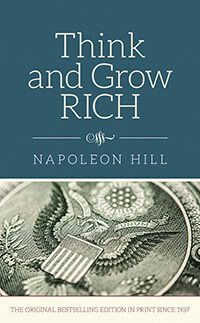
It’s interesting. And language, whatever you want to call it—affirmations, declarations, whatever you want to call it, when you say something, and where I think a lot of people miss it is that when you use language over and over again, repeatedly, you create neural pathways in the brain. That’s science so you and I and anybody listening to this, our brains are all different from when we started this. Our brains are always changing, they’re never the same so when we started recording this podcast until we’re done and whoever is listening, your brain would have changed at that time. If we looked to your brain before and we look at it after, it would be different. It’s just a fact. And you talked about mirror neurons and if you don’t know mirror neurons, you can look up some of that but there’s a lot around us. We could literally do an entire episode where we can talk about this but the bottom line is, affirmations, declarations, whatever you want to call it, I think about a declaration, I declare something, there might make some difference if you wake up and say “I’m a man who does what he says he’s going to do.”
That might make some difference if you said that over and over. It might remind you, right? What actually makes it powerful is when you live that. When your actions are consistent with what you’re saying. That’s what really makes the difference and so for me, obviously I’m a big fan of Napoleon Hill’s work and Outwitting the Devil, which is just one of the best books ever written, and he talks about definitiveness of purpose. For me, it’s a way to stay very present, to what is it that I’m committed to, and really what I would say is, who I’m committed to being and it’s the way to stay ultra-present to that so as I move through the world, I’m really present to who am I committed to being in the world, how am I living, what kind of difference am I making and that’s the way that I see it. Does that answer—does that kind of speak to what you were saying?
That’s great. That’s just great. And for those who have maybe only had some minimal interaction or exposure to Napoleon Hill—not only did he write, Think and Grow Rich, which you absolutely all need to read but also Outwitting the Devil, which was basically hidden from the world for, what, 70 years or something like that?
Yeah, I think he wrote that in 1938 and then it was published, I think, in 2011.
And it wasn’t until the estate of Napoleon Hill, somebody there decided to release this unpublished manuscript that was withheld by Napoleon’s wife, I believe, for many years because she felt uncomfortable with basically how controversial the writings would be. Am I getting that right?
Yeah, that’s my understanding. I mean, the book is just so relevant for today. Even though it was written in 1938.
It’s like the perfect timing. The timing is divine for the world to now consume this book. This amazing book, Outwitting the Devil. Alright, so we are out of time and wow, what a gift this episode was! Thank you so much, Ephraim, for being on the show. How would people who want to perhaps, hire you as their coach or have their whole organization work with you—how would they reach you?
Well, by the time this podcast goes live, there will be a website up so people can go there, it will really be simple, but the site that they can go to is Intraexperience.com. Intra is Latin for power within, so Intraexperience.com, and there are going to be a lot of great resources, different documents, and hopefully, we can put a link of this episode there as well.
Alright, and then also, listeners, if you could check out Get Yourself Optimized website for the transcript of this episode and there will be a really handy checklist included with the transcript. You definitely want to grab those two things, it’s all together in one PDF. That’s at Get Yourself Optimized website, www.getyourselfoptimized.com. Thanks, everyone for listening. We’ll catch you on the next episode! I’m your host, Stephan Spencer.
Important Links
Connect with Ephraim Olschewski
Organizations/Companies
People
Books
Previous Get Yourself Optimized Episode


